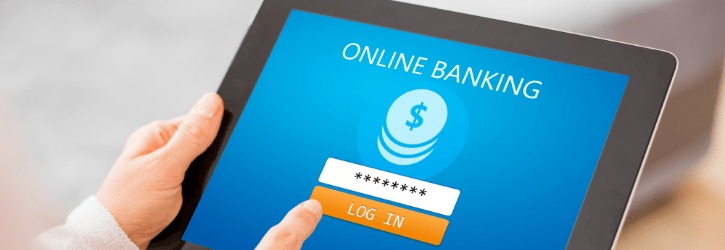
Welcome To The Data Leak Lawyers Blog
We focus on the latest news surrounding data breaches, leaks and hacks plus daily internet security articles.

We focus on the latest news surrounding data breaches, leaks and hacks plus daily internet security articles.

There are rising financial services data breach incidents, according to the number of reports that have been made to the Financial Conduct Authority (FCA).
In 2018, it’s understood that the number of data breaches that had been reported to the FCA had increased by a monumental 480%.
With May 2018 seeing the introduction of the new GDPR rules, punishments that can be issued for data incidents can amount to millions. On top of that, victims can be entitled to make a claim for compensation. Financial services data breach compensation amounts can be high, depending on the nature and severity of the incident.

The Windrush data breach incident that happened on 7th April 2019 has forced changes to be adopted by the Home Office following the leak of information surrounding the compensation scheme.
Earlier this month, mass emails were sent out to people taking part in the Windrush compensation scheme, as well as other interested parties. Emails were reportedly sent out in batches of 100, and the first five batches are understood to have resulted in a data breach. Yet again, this was another case where recipients of the email could see each other’s information.
This kind of incident has happened so many times before, and it triggered one of the more severe compensation actions we’re involved ion; the 56 Dean Street Clinic leak. Changes are now set to be made.

A study by software giants Symantec has suggested that hotels leaking data is a far more common problem than most people may think.
Their research has indicated that as many as two out of three hotels are leaking data. The data being leaked includes names, email addresses, credit card information and passport information. This kind of data is more than enough for fraudsters and cybercriminals to do some serious damage.
Some 1,500 websites were analysed across 54 different countries as part of the study. This news comes just months after the monumental Marriott data breach that remains fresh in our minds.

If you were a victim of the Marriott data hack, you may be worried about the uncertainties surrounding the event.
It has to be remembered that this was a huge, huge breach that affected some 500 million customers worldwide. Data may have been vulnerable and exposed for four years. Data breached included passport information, which is incredibly serious. Partial payment card information is also understood to have been exposed for some.
With the revelations that the company may never know who was behind the devastating data breach, what can the victims do to feel safe? All we can do as data breach lawyers is help you claim compensation as a victim of the breach.

It can be a huge problem if universities are hacked. Reports suggest that more needs to be done when it comes to educational cyber defence, as recent reports have confirmed that white hat hackers managed to easily break into systems.
According to media reports, white hat hackers managed to gain access to “high value” data from universities in hours. In case you’re not sure, “white hat hackers” are essentially hackers who break into systems for non-malicious proposes. They often inform the organisations they have hacked so they can improve their security. They’re often security specialists themselves.
We’ve seen the damage that university data breaches can cause. We continue to run an action for victims of the University of Greenwich Data Leak. In that case, a wealth of personal and sensitive data was exposed.

Facebook user records exposed again! In yet another data breach that’s hit the social media giants, data for millions of users has been found on a publicly-accessible Amazon server.
This is one in a growing line of recent Facebook data breach incidents that has plagued the tech giants in recent years. This appears to be another case of third-party developers being responsible for the incident as well. It’s understood that the leaks involve Cultura Colectiva, a media firm, and an app named At The Pool.
Some of the data that has been exposed in this leak is worrying. It’s yet another warning about the dangers of sharing Facebook account information via apps and plugins. Facebook themselves cannot avoid responsibility for these incidents either.

We’ve started taking cases forward on a No Win, No Fee basis for victims of the PFEW cyber attacks that were announced recently.
Some 120,000 police employees may have been affected by this data breach, spanning 40 different forces. The PFEW (Police Federation of England and Wales) cannot determine whether any information was exposed, so on the basis that it cannot be ruled out, we’ve agreed to take cases on.
Another key factor is that there were two separate incidents that spanned over a number of weeks. The first incident took place on 9th March 2019, and the second took place on 21st March 2019. It’s believed that the attacks were a part of a wider operation as opposed to specifically targeting PFEW.

Last month, apologies and testimonies took place in relation to the massive Marriott cyber attack that saw some 500 million people’s records exposed.
Marriott International Inc.’s Chief executive, Arne Sorenson, reportedly appeared before a U.S. Senate committee to testify. As part of a written testimony, an apology was issued, although the company is said to have declined to comment on the developments.
There are stark differences between how the U.S. deal with companies in the wake of huge data breaches and how the U.K. deals with them. Although we have the Information Commissioner’s Office (ICO) who can issue fines in the millions under GDPR, the government rarely gets involved in the same way the U.S. does. However, victims in the U.K. can still be eligible to claim data breach compensation. This is important to remember.

Given the scale of this growing market, which is becoming increasingly monetised with in-game purchases often the norm now, we may see increases in online gaming data breach incidents.
When you look under the surface of the gaming industry, there are a number of reasons to feel concerned. The revelations about Fortnite hacking (or Fortnite cracking as it’s often referred to) is worrying. Some youngsters are making a mint by hacking into accounts and then making use of the often-hard-earned digital property the original account user had amassed as they sell accounts on.
Online gaming is on the rise. This could put a bigger target on their back for the cybercriminals and fraudsters who can exploit gamers with ransom demands and account takeovers.

The (PFEW) Police Federation of England and Wales data breach incidents were announced earlier this month, and they’re potentially huge. The PFEW cyber attacks may have affected 120,000 police employees.
Although PFEW say that they don’t believe any information was exposed, they cannot rule it out. For the potential victims of the breaches, this isn’t helpful. It’s hard enough these days being on the police force with constant cuts and under-staffing.
This kind of added stress in the current environment of policing isn’t helpful at all.
EasyJet admits data of nine million hacked
British Airways data breach: How to claim up to £6,000 compensation
Are you owed £5,000 for the Virgin Media data breach?
Virgin Media faces £4.5 BILLION in compensation payouts
BA customers given final deadline to claim compensation for data breach
Shoppers slam Morrisons after loyalty points stolen
Half a million customers can sue BA over huge data breach
Lawyers accuse BA of 'swerving responsibility' for data breach
The biggest data breaches of 2020
Fill out our quick call back form below and we'll contact you when you're ready to talk to us.